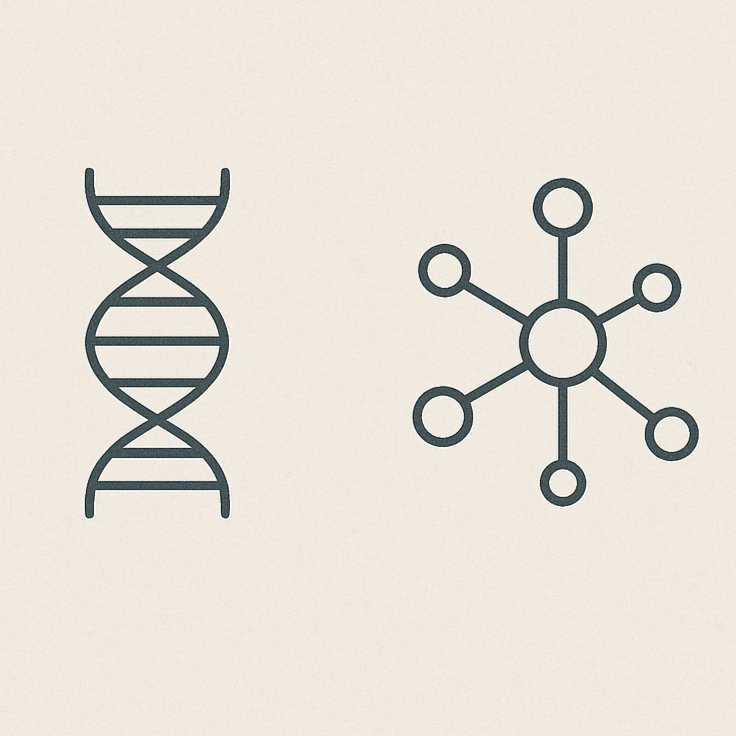Research Themes
Our work covers five areas: the models we create and four biological themes that shape our research.
T Cell Differentiation
How do CD4 and CD8 T cells decide their fates?
We study how T cells transition into effector, memory, exhausted, or regulatory states across infection, cancer, and tolerance. Our work centers on the transcription factors and epigenetic regulators that shape these decisions, as well as the T cell receptor (TCR) signals that initiate and sustain them.
Areas:
Transcriptional and chromatin regulation of T cell differentiation.
The role of the TCR in shaping lineage choices.
Comparisons across tumors, draining lymph nodes, infection, and tolerance.
Links:
Tolerance and Immune Checkpoints
How are T cells restrained in normal tissues?
T cell responses must be controlled to avoid autoimmunity. We investigate peripheral tolerance mechanisms, with a particular focus on the PD-1/PD-L1 pathway in tissues such as skin and colon. These models reveal how checkpoints prevent tissue damage, while also mirroring the same pathways targeted in cancer immunotherapy.
Areas:
How PD-1/PD-L1 protects epithelial tissues.
How tolerance and checkpoint blockade intersect in cancer therapy.
How tolerance failures relate to autoimmune disease.
Links:
Role of PD-1 in establishing and maintaining skin tolerance
Immunosurveillance for neoantigens in the colonic crypt (Under review)
Tissue and Organization
How do lymphoid niches support T cell function?
We study how immune niches like tumor-draining lymph nodes (tdLN) and tertiary lymphoid structures (TLS) organize T cell and B cell interactions. These structures act as reservoirs and support hubs that sustain T cell populations during chronic responses.
Areas:
LNs function in maintaining stem-like CD8 T cells
Role of CD4 T follicular helper (TFH) cells and B cells in boosting CD8 T cell function.
Mechanisms and functions of tumor-associated TLS
Links:
T-Follicular helper cells promote anti-tumor CD8 T cell responses via IL-21
Cancer & Tumor Differentiation
How do immune responses and tumor differentiation shape each other?
Cancers are not static. As tumors grow, they undergo developmental changes — losing lineage fidelity, de-differentiating, or shifting their identity under selective pressures. We investigate how oncogenes and tumor suppressor genes interact with the immune system, and how early T cell responses influence cancer progression.
Areas:
How tumor-specific T cells place selective pressure on cancer cells, altering their differentiation programs.
How different oncogenic pathways and tumor suppressor mutations influence anti-tumor T cell responses
Mechanisms of immunosurveillance and immunoediting
Links:
Dual mechanisms for immunoediting and immunoselection in early sarcomas





